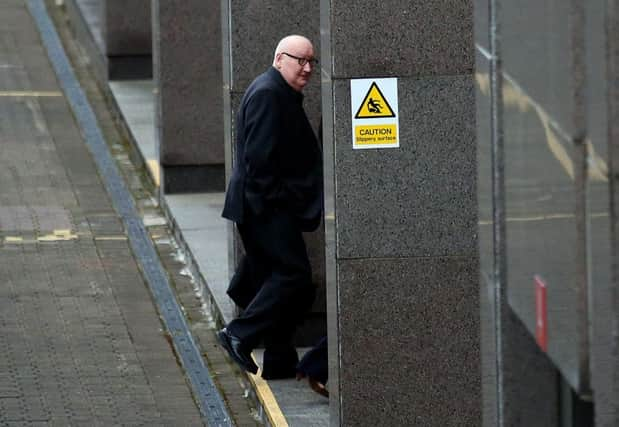Leaders: Exasperation in families’ search for justice


As more and more details of driver Harry Clarke’s career history have emerged during the inquiry, disquiet has grown over the Crown Office’s perceived haste in deciding not to prosecute him.
Then one of the affected families announced they would seek a private prosecution, throwing into doubt the future progress of the FAI.
Advertisement
Hide AdAdvertisement
Hide AdIt was initially thought the inquiry would have to be adjourned until any criminal proceedings had run their course. That was because further evidence could prejudice Mr Clarke getting a fair trial, if it came to one. Despite this, the FAI has continued regardless and he has been called to give evidence.
But Mr Clarke was told he did not have to answer any questions that might incriminate him. That has created a farcical situation in the witness box, with the driver saying no comment to some 170 questions on Thursday alone.
This has not only prevented anything new of value for the inquiry coming from Mr Clarke. It will also have exasperated relatives desperate to understand why the crash happened and why their loved ones were killed or injured.
In fact, all that has been caused is offence. Offence that the driver refused to answer the questions put to him, and further offence that he has repeatedly refused to apologise.
Presumably he will not apologise, at this stage of the proceedings anyway, because to say sorry would have a potentially significant impact on any prosecution case – it could be held against him and even be interpreted as an admission of guilt.
Furthermore, the questioning has become increasingly emotive, and this will only have heightened the frustration of the bereaved.
It would have been wiser to call a halt this week, before Mr Clarke appeared. Some would regard such an adjournment now as equally unsatisfactory, and it could be argued it is in the public interest to have the FAI’s findings out as soon as possible. But the greater good would have been served by ensuring the inquiry was unfettered by a looming prosecution, however long we needed to wait for it to resume.
That way, both truth and justice would be served.
This has been a dreadful ordeal for the families of those who died in the incident last Christmas. If they feel the system has failed them from start to finish, who could blame them?
Touching tale of transformative tech
Advertisement
Hide AdAdvertisement
Hide AdSCOTLAND’S scientific standing has taken something of a battering lately, so it’s heartening to hear some good news to end the week.
The Scottish Government’s decision to ban the growing of genetically-modified crops was met with a warning of “apocalyptic” consequences from a former chief science adviser.
Then came news of a surprise decline in the number of pupils sitting physics, chemistry and maths Highers, amid concern at a shortage of school leavers with such qualifications to meet the country’s economic needs.
But now we learn of the development of a bionic hand which will change the life of nine-year-old Josh Cathcart from Fife, who was born without a lower arm.
The i-limb quantum was designed, produced and fitted in Scotland thanks to the ingenuity of Livingston firm Touch Bionics. The company describes it as the most advanced prosthetic hand available to people with upper limb deficiencies.
In Josh’s case, it has not only given him the ability at last to do everyday things like play games and make himself a snack, but also help counter an affliction suffered by all too many youngsters – bullying. This is the type of development of which Scotland will be proud – an invention involving cutting-edge technology that can have a transformative effect for many people.
It is also a big growth area. The wider global robotics market, in which Scotland is playing a major part, is forecast to be worth trillions of pounds a year within a decade.
So it’s three cheers for Touch Bionics, and for Josh Cathcart, who immediately put his new arm to good use by building Lego. He may be another inventor in the making.